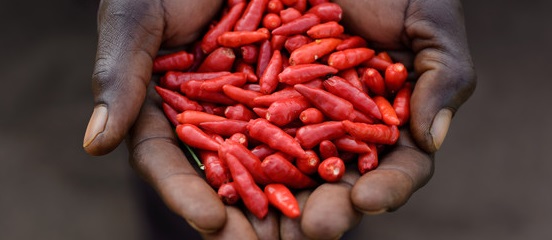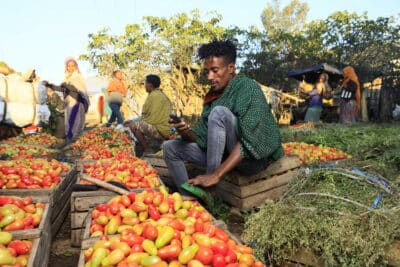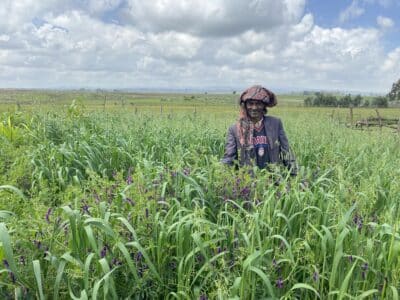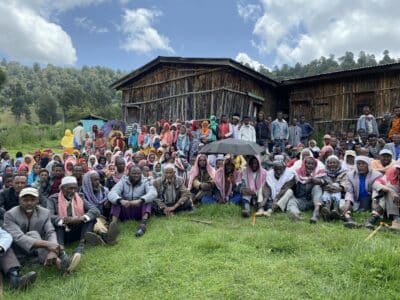News
Ethiopia
28 September 2022
Improving seed access across eastern Africa

Improvement in seed quality correlates directly to improved productivity and yields, but many smallholder farmers face challenges in accessing the seeds they need, a new report from Farm Africa has found.
The report focuses on the various types of quality-declared seed (QDS) available to farmers in eastern Africa, with case studies from Uganda, Tanzania and Ethiopia.
Using QDS offers many advantages to smallholder farmers. Whilst improved seed produced under formal seed systems also increases yields, this is controlled by government agencies and the lengthy inspection process means that farmers do not always see a ready supply of such seeds.
Less than 20% of farmed land in Africa is cultivated with improved seed due to its high costs and problems in accessibility.
QDS helps bridge this access gap, since it meets the minimum standards of formal systems, but does not require formal inspection by the official seed certification system.
This reduces the burden of government agencies responsible for carrying out inspections, as well as increases the quantity of quality seed that can reach smallholder farmers.
Farm Africa worked in Uganda, Tanzania and Ethiopia to improve access to QDS.
In Southern Nations, Nationalities, and People’s Region, Ethiopia, improved seed directly resulted in improved yields. As part of Growth for the Future project, Farm Africa engaged 1,595 smallholder farmers, supplying QDS and measuring the difference it made on productivity.
The average yield of haricot beans per unit area (Qt/Ha) increased threefold from a baseline of 5qt/ha to 15qt/ha. This in turn led to a household income increase of 97%.
Several interventions need to be put in place across the region to ensure that the benefits of QDS are enjoyed widely.
Foundation seed access is critical to bridge the seed access gap. Private sector involvement is key to increasing access as presently seed breeding is dominated by the public sector.
Incentives need to be put in place for seed producers to ensure high-quality seed isn’t repurposed as grain. Consuming high-quality seed instead of planting can have strong food security repercussions.
The report also addresses the impact of national seed laws, arguing that governments in the region need to increase the role of community-based organisations (CBOs) and Agriculture Marketing Cooperative Societies (AMCOS) in distributing QDS.
To find out more, read Quality Declared Seed, written by Anastasia Mbatia, Senior Technical Manager for Farm Africa.




